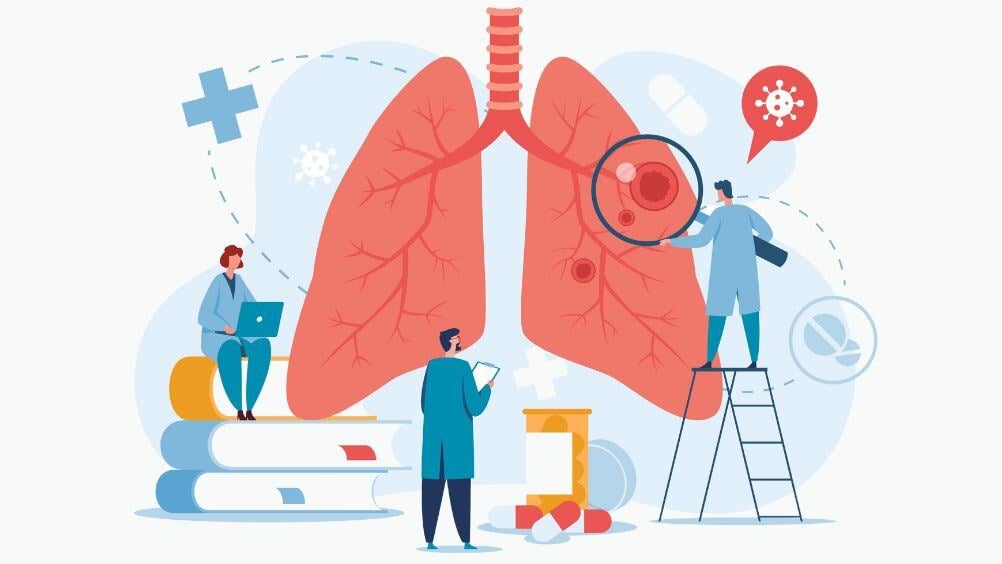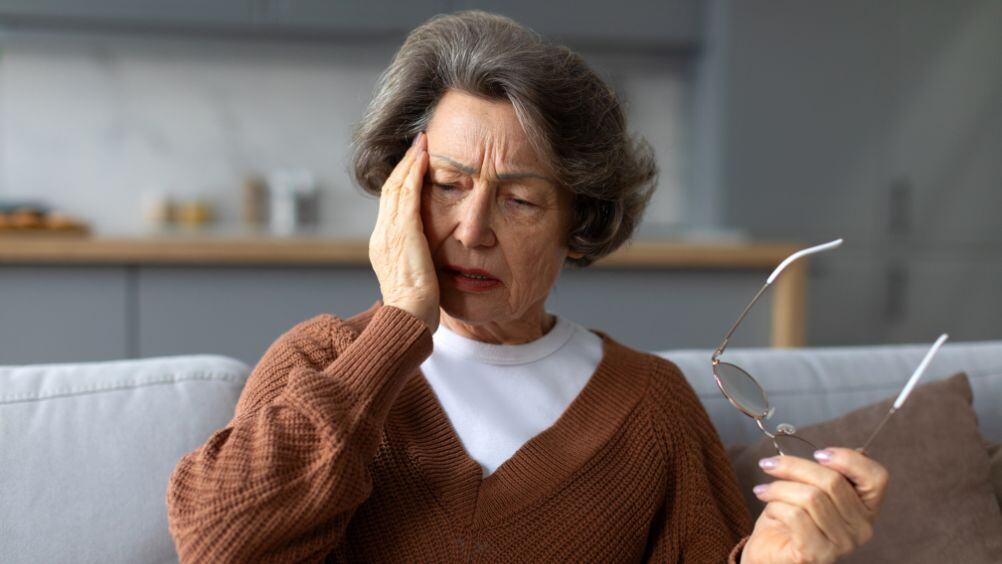Targeted therapy is a category of drugs designed to kill cancer cells by “targeting” proteins and genetic mutations that allow cancer cells to grow. Over the past several years, there have been huge advances in targeted therapy cancer treatments for advanced non-small cell lung cancer. These drugs are designed to target specific genetic mutations found in some patients.
This breakthrough cancer treatment has introduced a new set of options for non-small cell lung cancer patients whose cancer has recurred or has spread to other areas of the body. Read on to learn about targeted therapy and how cancer research has helped advance treatment methods for lung cancer.
What is the Goal of Biomarker Testing for Lung Cancer?
Genomic testing, also known as biomarker testing or tumor testing, can help oncologists decide which targeted therapy would be best to use. Genomic testing looks at a patient's tumor cells to find genetic mutations that may indicate they would benefit from a specific targeted therapy treatment. This is called tumor profiling.
Based on the tumor’s profile, a personalized treatment plan is generated. If a genetic mutation was found and a drug is available to target that gene, it can be incorporated into the treatment process. There may be other treatments included, such as chemotherapy and/or targeted therapy. If no genetic mutations are found in the lung cancer cells, then a different approach to treatment is most likely taken.
Genomic testing also determines if the cancer is slow or fast-growing and how likely the cancer cells are to spread to other areas of the body.
Genomic Testing vs. Genetic Testing for Non-Small Cell Lung Cancer Patients
Genetic testing is different from genomic testing. Genetic testing looks at a patient's genes and chromosomes for inherited mutations. There are some inherited genetic mutations related to lung cancer that your oncologist may run tests to look for.
Genomic tests identify specific gene mutations that have developed over time in one of the following genes: KRAS, EGFR, ALK, ROS1, BRAF, RET, MET, HER2, and NTRK.
Ongoing Lung Cancer Research
In ongoing research, physicians and scientists continue to study cancer cells to find out how tumors grow, spread, and respond to treatments. The oncologists at Willamette Valley Cancer Institute are active participants in the clinical research process. Research trials are available to some patients who qualify based on the patient’s history and the requirements for participating in the trial. The oncologist will tell you whether a trial is appropriate for you.
As genome-sequencing technology advances, new genetic mutations are identified, and drugs can be developed to stop the growth of the lung cancer cells caused by that mutation. This is being done not only for non-small cell lung cancers but for other types of cancer, including colorectal.
Targeted therapy also allows doctors to test whether a drug will be effective at targeting only cancer cells while leaving healthy cells unharmed, which is important because some traditional chemotherapy drugs can destroy normal cells as well as cancerous ones.
How are Targeted Therapies Given, and What are the Side Effects?
The specific drug available to target a genetic mutation will determine the way it’s delivered. Many targeted therapies for lung cancer are given in a pill format, while others are given through an IV into a vein, the same way chemotherapy is administered.
For most patients, there are fewer side effects of targeted therapy compared to chemotherapy. One common side effect that’s somewhat unique to targeted therapy is a skin reaction. After using a targeted therapy drug for a few weeks, you might start to see a difference in your skin. This doesn’t mean you have an allergy to the drug. Rather, your body is fighting the genetic mutation to slow or stop the growth of lung cancer cells, but it can impact your skin by turning off your skin’s signal to grow and reproduce healthy cells.
You might notice changes such as:
- Sensitivity to sunlight
- Rash
- Dry skin
- Peeling cuticles
- Changes to the color of skin, especially in sensitive areas such as under the eye
For most patients, these reactions go away after treatment is complete. Talk to your oncologist about what you’re experiencing. You might also notice your hair becoming dry or brittle, but it does not tend to fall out like it can with some chemotherapies.
Other side effects can be constipation, diarrhea, high blood pressure, swelling, or slow wound healing. There are often ways to help with these issues. Be sure to talk with the cancer care team about anything you notice while taking targeted therapy.
How Does the Future Look for Lung Cancer Patients?
Advances in the ability to detect and analyze biomarkers are resulting in continued improved outcomes for patients with advanced non-small cell lung cancer. The ability to identify specific mutations and understand which treatment options could be best for every patient is an exciting improvement in lung cancer treatment.
While patients may still need other various treatments, such as surgery, chemotherapy, and radiation, receiving treatments specifically tailored to a patient's unique nature is expected to bring better results than ever before.
Continuing to explore and research genomic testing and targeted therapies for NSCLC and other types of cancer will result in even more personalized care for patients. If you or someone you know has advanced non-small cell lung cancer or it has recurred, targeted therapy may be an option. Request an appointment at one of our cancer centers in Albany, Corvallis, Eugene, Florence, Lincoln City, and Newport, OR.




